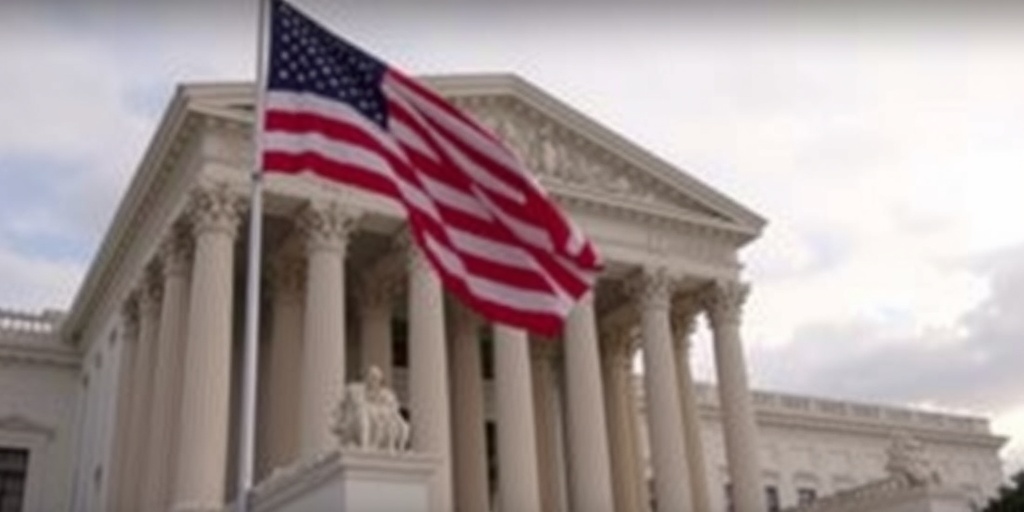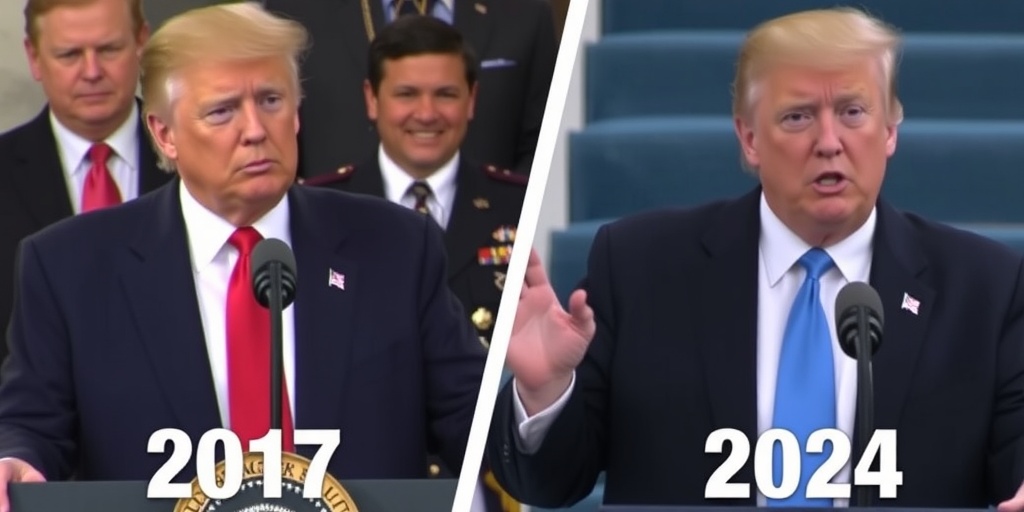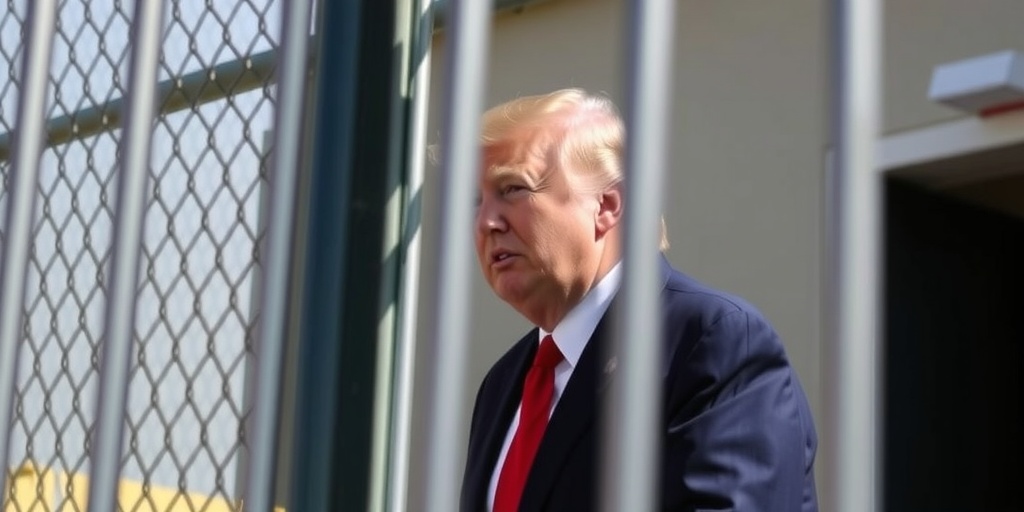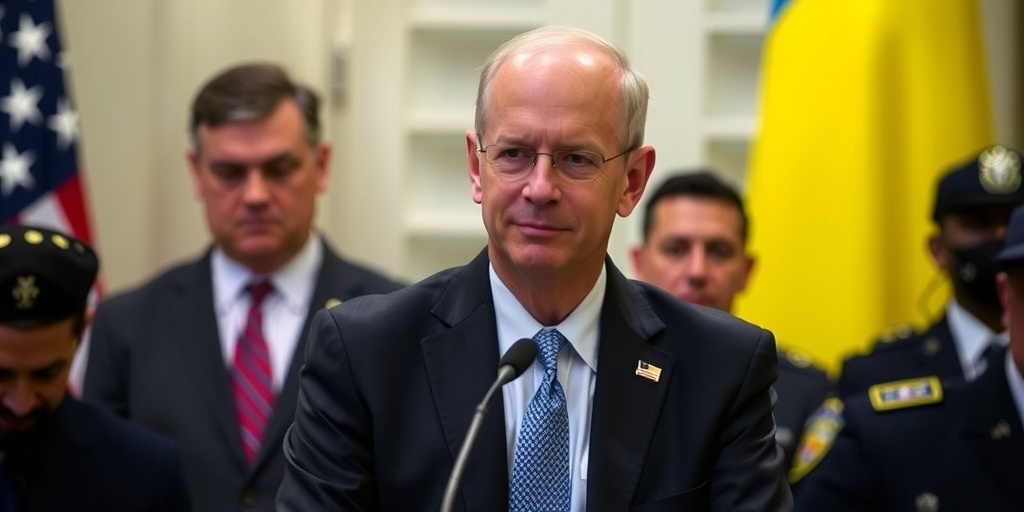Now Reading: Supreme Court Denies Trump’s Request to Halt Foreign Aid
-
01
Supreme Court Denies Trump’s Request to Halt Foreign Aid
Supreme Court Denies Trump’s Request to Halt Foreign Aid

Supreme Court Rejects Trump Administration’s Request to Halt $2 Billion in Foreign Aid
On a pivotal day for the Trump administration, the U.S. Supreme Court issued a significant ruling on Wednesday, denying President Trump’s emergency request to freeze approximately $2 billion in foreign aid. This dispute arose amid the administration’s broader efforts to cut government spending and reshape the federal budget.
The unsigned order by the Supreme Court did not delve into details but directed the trial judge to provide clarity on the government’s obligations concerning the resumption of aid payments. This ruling marks one of the first instances in which the Supreme Court has deliberated on the legal challenges stemming from President Trump’s drastic fiscal policies and actions during his early presidency. Notably, the decision split along ideological lines, with a narrow 5 to 4 majority. Chief Justice John G. Roberts Jr. and Justice Amy Coney Barrett joined their three liberal counterparts, forming a majority that countered the dissenting viewpoint held by Justices Samuel A. Alito Jr., Clarence Thomas, Neil M. Gorsuch, and Brett Kavanaugh.
Justice Alito, who penned the dissent, expressed his disapproval, claiming that the majority had fundamentally misjudged the situation. He raised concerns about the authority of a single district-court judge in dictating the disbursement of taxpayer dollars without sufficient legal justification. "Does a single district-court judge who likely lacks jurisdiction have the unchecked power to compel the government of the United States to pay out (and probably lose forever) $2 billion taxpayer dollars?" he questioned, asserting that the answer should unequivocally be "No." Alito’s sentiments reflect the apprehensions of those wary of judicial overreach in executive matters.
The foreign aid in question was initially suspended on January 20, 2025, the very first day of President Trump’s tenure. In response to this halt, multiple nonprofit organizations and foreign aid recipients filed lawsuits, contending that the administration’s actions represented an unconstitutional overreach of executive power, infringing upon congressional appropriations designated for the U.S. Agency for International Development (USAID). The plaintiffs have highlighted the dire consequences of this freeze, emphasizing that it has led to severe disruptions in critical global services, jeopardizing medical care, leading to wasted food supplies, and contributing to wider public health and political crises around the world.
In one of the lawsuits, attorneys representing the Global Health Council—a coalition of health groups—articulated the extensive impact of the aid disruption. They noted the plight of businesses forced to close their programs and lay off employees, the suffering of hungry children globally, and the threat to populations at risk of disease. Acknowledging the broad ramifications of aid suspension captures the stakes involved in this legal battle, which transcends mere financial concerns and touches upon humanitarian issues.
Federal District Court Judge Amir Ali, appointed by President Biden, played a crucial role in this debate. On February 13, he issued a temporary restraining order that barred the administration from halting or delaying the payments of previously appropriated funds. Judge Ali pointed out that the administration failed to provide a credible rationale for the broad suspension of aid mandated by Congress.
Despite Judge Ali’s orders, administration officials appeared to undermine his rulings by maintaining that they were entitled to conduct a case-by-case review of funding, effectively stalling aid disbursement. The tension escalated when Judge Ali later mandated that more than $1.5 billion be paid for work already fulfilled. A looming deadline for this payment prompted the Trump administration to seek relief from the Supreme Court, arguing that the lower court had exceeded its authority.
Reacting swiftly, Chief Justice Roberts issued an administrative stay to temporarily halt the payment orders while the court deliberated. However, with Wednesday’s order, the Supreme Court lifted that stay, compelling the administration to resume aid distribution as mandated.
Justice Alito was vocal in his dissent, asserting that the decision placed undue power in the hands of a single district judge, who could unilaterally dictate the disbursement of substantial federal funds. Alito underscored the importance of maintaining the separation of powers as articulated by the Constitution, indicating concern over potential injustices stemming from this ruling.
Further complicating the administration’s position, plaintiffs submitted a brief stating that its legal challenges stemmed from self-created emergencies. They argued that the administration’s restrictive funding approach had led to a significant financial crisis for businesses and nonprofits reliant on foreign aid.
Amid this tumultuous legal environment, President Trump sought to justify his actions through an executive order issued on his first day in office, which aimed to reevaluate foreign aid programs. Trump’s directive suggested that many aspects of the foreign aid landscape were misaligned with American interests and values, asserting that they often contributed to instability rather than global harmony.
Overall, this Supreme Court ruling and the surrounding legal battle underscore the broader implications of executive power and the intricacies of federal funding mechanisms as they intersect with judicial oversight and humanitarian commitments.
Stay Informed With the Latest & Most Important News
Previous Post
Next Post
-
 01New technology breakthrough has everyone talking right now
01New technology breakthrough has everyone talking right now -
 02Unbelievable life hack everyone needs to try today
02Unbelievable life hack everyone needs to try today -
 03Fascinating discovery found buried deep beneath the ocean
03Fascinating discovery found buried deep beneath the ocean -
 04Man invents genius device that solves everyday problems
04Man invents genius device that solves everyday problems -
 05Shocking discovery that changes what we know forever
05Shocking discovery that changes what we know forever -
 06Internet goes wild over celebrity’s unexpected fashion choice
06Internet goes wild over celebrity’s unexpected fashion choice -
 07Rare animal sighting stuns scientists and wildlife lovers
07Rare animal sighting stuns scientists and wildlife lovers





















